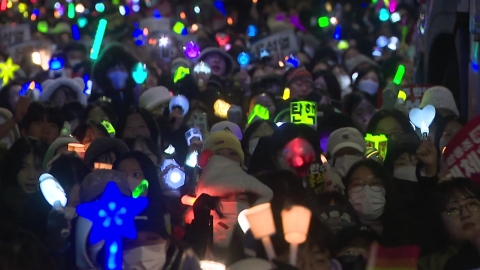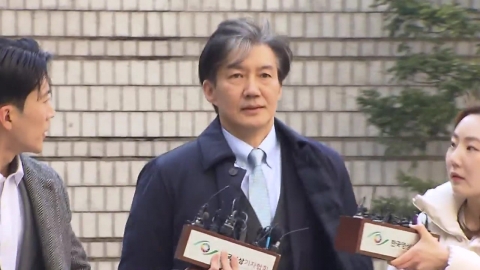The United States and Japan once again confirmed strengthening cooperation to check North Korea, China and Russia.
Despite the political turmoil in Korea and the collapse of the Syrian regime, security cooperation based on the U.S.-Japan alliance seems to be a message of solidity.
Correspondent Kim Se-ho's report from Tokyo.
[Reporter]
Japanese Prime Minister Shigeru Ishiba met with U.S. Defense Secretary Royce Austin at his official residence.
Prime Minister Ishiba emphasized that the surrounding situation is changing rapidly, referring to the emergency situation in South Korea and the collapse of the Syrian regime.
[Shigeru Ishiba / Japanese Prime Minister: No one thought about the situation in Korea a week ago. Maybe the textbook 100 years from now says it's a historic turning point.]
Austin said he hopes the U.S.-Japan alliance will be a cornerstone of stability and peace in the region, evaluating the achievements of the U.S.-Japan alliance over the past four years.
[U.S. Secretary of Defense Lloyd Austin: I am particularly proud of everything I have done over the past four years to modernize the alliance's command and control and strengthen preparedness and deterrence.]
Austin also told Defense Minister Gen Nakatani that he is resolute in responding to threats from North Korea-Russia military cooperation and China.
In particular, he reiterated the need for checks, referring to China's military activities in East and South China.
It also said that cooperation between South Korea, the U.S. and Japan will continue unchanged.
[U.S. Secretary of Defense Lloyd Austin: We are committed to these challenges with confidence and determination, and we are committed to advancing trilateral cooperation with South Korea.]
These comments seem to emphasize that Korea's political turmoil and Korea-U.S.-Japan cooperation are separate.
In the meantime, the United States and Japan held their first maritime consultation in Tokyo with the Philippines and reaffirmed their opposition to China's unilateral attempt to change the status quo.
However, the Trump administration, which will be launched next year, is likely to focus on individual negotiations with North Korea, China, and Russia, which is expected to be a variable for future cooperation between South Korea, the U.S. and Japan.
I'm Kim Se-ho from YTN in Tokyo.
※ 'Your report becomes news'
[Kakao Talk] YTN Search and Add Channel
[Phone] 02-398-8585
[Mail] social@ytn.co.kr
[Copyright holder (c) YTN Unauthorized reproduction, redistribution and use of AI data prohibited]
International
More- Putin "cooperates with BRICS to develop AI"...a challenge to U.S. hegemony
- "If you buy Biden's son, only 22% of Americans agree..."I'm against the majority".
- Israeli defense "possible to reach release of Gaza hostages"... call with U.S. Defense Secretary
- US Nasdaq Index Breaks First 20,000 Level...The S&P 500 is also at an all-time high.









